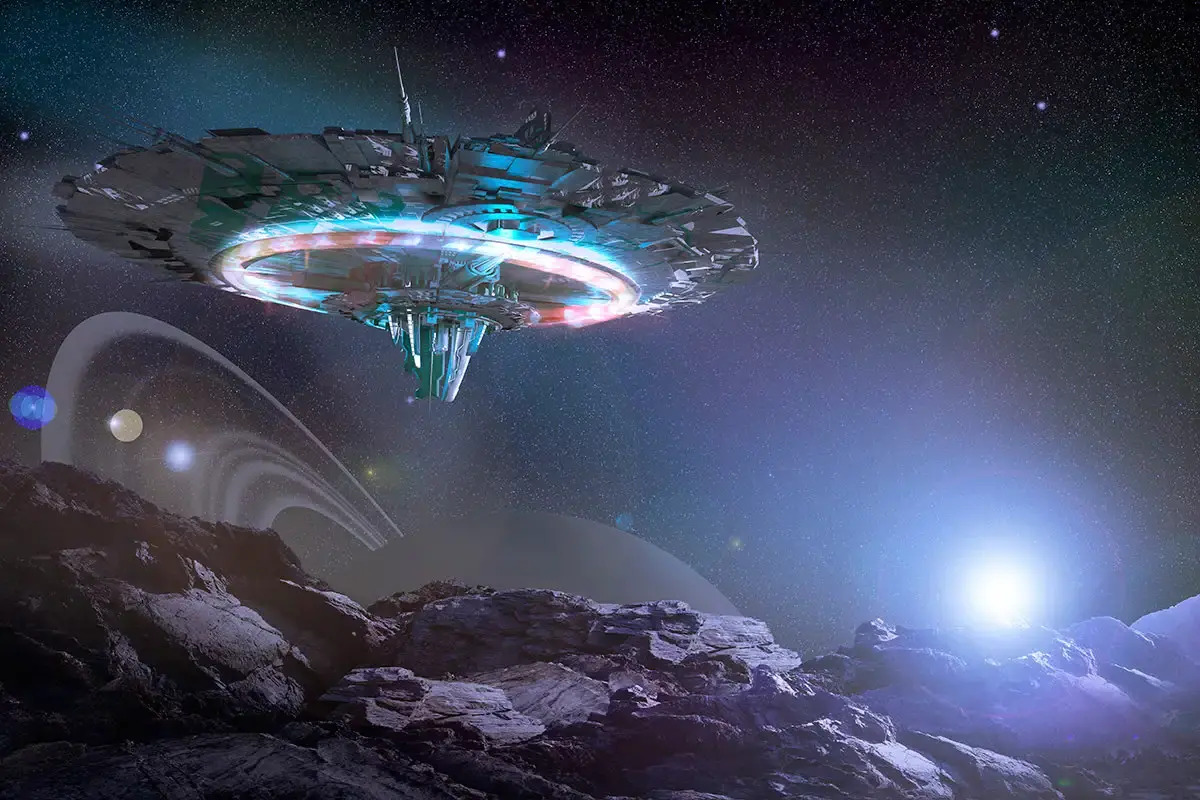
Science fiction has always been a genre that stretches the imagination, blending futuristic technology with human curiosity. Ever wondered how it all began or what makes it so captivating? Science fiction isn't just about aliens and spaceships; it’s a mirror reflecting our hopes, fears, and dreams. From the early works of H.G. Wells to the modern tales of space exploration, this genre has evolved, yet its core remains the same: exploring the unknown. Whether you're a die-hard fan or a curious newcomer, these 28 facts about science fiction will take you on a journey through time, space, and the human mind. Buckle up!
Key Takeaways:
- Science fiction, or sci-fi, has a rich history dating back to the 19th century, with Mary Shelley's "Frankenstein" considered the first true sci-fi novel.
- Iconic works like "1984" and "Star Wars" have left a lasting impact on the genre, influencing real-world technology and sparking important societal conversations.
The Origins of Science Fiction
Science fiction, often abbreviated as sci-fi, has a rich history that spans centuries. It explores futuristic concepts, advanced technology, and often delves into the unknown. Here are some fascinating facts about the origins of this genre.
-
Mary Shelley's "Frankenstein" is often considered the first true science fiction novel. Published in 1818, it tells the story of a scientist who creates life, only to be horrified by his creation.
-
Jules Verne and H.G. Wells are known as the fathers of modern science fiction. Verne's "Twenty Thousand Leagues Under the Sea" and Wells' "The War of the Worlds" set the stage for future sci-fi works.
-
The term "science fiction" was first used in 1851 by William Wilson in his book "A Little Earnest Book upon a Great Old Subject."
-
Hugo Gernsback, an influential editor and writer, coined the term "scientifiction" in 1926, which later evolved into "science fiction."
Iconic Science Fiction Works
Certain works have left an indelible mark on the genre, influencing countless authors and filmmakers. These iconic pieces continue to captivate audiences.
-
"1984" by George Orwell presents a dystopian future where Big Brother watches every move, highlighting the dangers of totalitarianism.
-
"Brave New World" by Aldous Huxley explores a future society driven by technological advancements and genetic engineering, raising questions about individuality and freedom.
-
Isaac Asimov's "Foundation" series is a cornerstone of sci-fi literature, introducing the concept of psychohistory and exploring the rise and fall of civilizations.
-
"Dune" by Frank Herbert is a sprawling epic set on the desert planet Arrakis, blending politics, religion, and ecology in a richly detailed universe.
Science Fiction in Film and Television
Sci-fi has also made a significant impact on film and television, bringing imaginative worlds and futuristic concepts to life on screen.
-
"Metropolis" (1927), directed by Fritz Lang, is one of the earliest sci-fi films, depicting a dystopian future with groundbreaking special effects.
-
"Star Wars" (1977), created by George Lucas, revolutionized the sci-fi genre with its epic space opera narrative and cutting-edge visual effects.
-
"Blade Runner" (1982), directed by Ridley Scott, explores themes of artificial intelligence and humanity, set in a visually stunning, dystopian future.
-
"The Matrix" (1999), directed by the Wachowskis, introduced audiences to a simulated reality controlled by machines, blending cyberpunk aesthetics with philosophical questions.
Science Fiction and Technology
Sci-fi often predicts or inspires real-world technological advancements. Many inventions and concepts first appeared in the pages of sci-fi novels or on the big screen.
-
Arthur C. Clarke's "2001: A Space Odyssey" predicted the use of tablets and voice-activated computers long before they became a reality.
-
The concept of the internet was envisioned by sci-fi writers like William Gibson in his novel "Neuromancer," which introduced the idea of cyberspace.
-
H.G. Wells' "The World Set Free" predicted the development of atomic bombs, describing a world where nuclear weapons are used in warfare.
-
"Star Trek" introduced the idea of communicators, which resemble modern-day mobile phones, and inspired the development of real-life technology like the flip phone.
Science Fiction Subgenres
Sci-fi is a diverse genre with numerous subgenres, each offering unique perspectives and themes. These subgenres cater to different tastes and interests.
-
Cyberpunk focuses on high-tech, low-life settings, exploring the impact of advanced technology on society. Notable works include "Neuromancer" by William Gibson and "Snow Crash" by Neal Stephenson.
-
Space opera features grand, epic tales set in space, often involving interstellar conflict and adventure. "Star Wars" and "The Expanse" series are prime examples.
-
Steampunk blends Victorian-era aesthetics with advanced steam-powered technology. "The Difference Engine" by William Gibson and Bruce Sterling is a classic steampunk novel.
-
Post-apocalyptic sci-fi explores life after a global catastrophe, such as nuclear war or a pandemic. "The Road" by Cormac McCarthy and "Mad Max" are iconic examples.
Science Fiction's Influence on Society
Sci-fi has not only entertained but also influenced societal views and sparked important conversations about the future.
-
"Star Trek" broke new ground with its diverse cast and progressive themes, including the first interracial kiss on American television.
-
"The Twilight Zone" used sci-fi to address social issues like racism, war, and conformity, making viewers question their own beliefs and values.
-
"Black Mirror" explores the dark side of technology and its impact on society, often presenting cautionary tales about our reliance on digital devices.
-
"The Handmaid's Tale" by Margaret Atwood examines themes of gender and power in a dystopian society, resonating with contemporary discussions about women's rights.
Fun and Lesser-Known Facts
Beyond the well-known aspects, sci-fi is full of quirky and lesser-known facts that add to its charm and intrigue.
-
The term "robot" comes from the Czech word "robota," meaning forced labor. It was first used in Karel Čapek's 1920 play "R.U.R."
-
"The Hitchhiker's Guide to the Galaxy" by Douglas Adams began as a radio series before becoming a beloved book series, TV show, and film.
-
Philip K. Dick's works have inspired numerous films, including "Blade Runner," "Total Recall," and "Minority Report," showcasing his lasting impact on sci-fi.
-
"Doctor Who" holds the record for the longest-running sci-fi TV series, first airing in 1963 and continuing to captivate audiences with its time-traveling adventures.
The Final Frontier
Science fiction isn't just about aliens and spaceships. It's a mirror reflecting our hopes, fears, and dreams. From time travel to parallel universes, these stories push the boundaries of imagination. They challenge us to think about technology's impact on society and what it means to be human.
Authors like Isaac Asimov and Philip K. Dick have left lasting legacies, inspiring countless others. Movies like Star Wars and Blade Runner have become cultural icons. Even scientific advancements owe a nod to sci-fi's visionary ideas.
Whether you're a die-hard fan or a casual reader, there's always something new to discover in this ever-evolving genre. So next time you pick up a sci-fi book or watch a futuristic film, remember—you're not just being entertained. You're exploring the endless possibilities of the universe.
Frequently Asked Questions
Was this page helpful?
Our commitment to delivering trustworthy and engaging content is at the heart of what we do. Each fact on our site is contributed by real users like you, bringing a wealth of diverse insights and information. To ensure the highest standards of accuracy and reliability, our dedicated editors meticulously review each submission. This process guarantees that the facts we share are not only fascinating but also credible. Trust in our commitment to quality and authenticity as you explore and learn with us.


